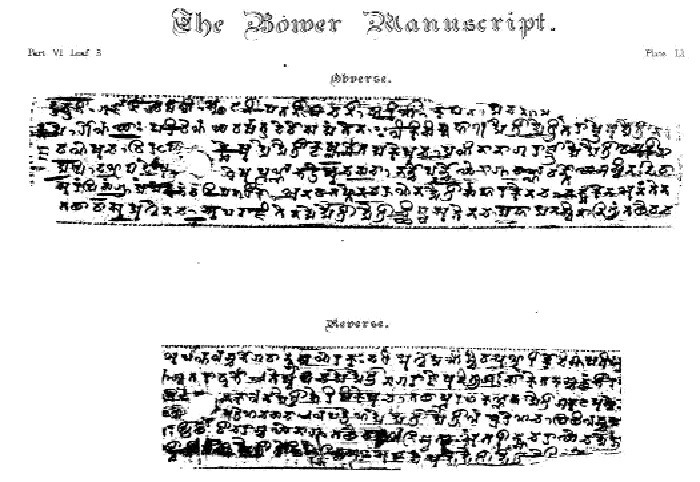How India lost its Manuscripts
| Date :01-Apr-2019 |

By Rajendra Diwe
How India has lost its knowledge and wisdom is the million dollar question being asked by number of Indians. The country which was once known as ‘Vishwa Guru’ is now struggling for knowledge and started believing in the British rulers. The country which had a tradition of transferring of knowledge in the form of Shruti and Smritis, documented the same in the form of Manuscripts in Sanskrit, Brahmi, Modi, Gupt, Pali and other scripts. Unfortunately, the country has lost these manuscripts and now these manuscripts can be seen in different libraries in countries like Germany, London, Australia, USA, Austria etc. Dr Sheshashyan Deshmukh, noted indologist of city narrated an interesting story of how British during their colonial rule destroyed the knowledge and taken away the manuscripts. Dr Deshmukh narrated a story of Andrew Dalgleish was a Scottish trader, traveller and government agent (or secret agent for British) during the Great Game. Great Game was a political and diplomatic confrontation that existed for most of 19th century between British and Russian Empires over Afghanistan and neighbouring territories in Central and Southern Asia.
Dalgleish was one of the first British traders in Ladakh, engaged in trans-Karakoram trade in 1870s and 1880s. Explaining how the two trade routes were existed during the Great Game, Dr Deshmukh said, traders across the world were interested in silk trade and spice trade. Discussing on the geographical map of British India in 1909, Dr Deshmukh highlighted the entire route and conflict between Russia and British over the trade. Andrew Dalgleish, on Karakoram Pass, between Ladakh, India and China took part in the first trading venture of the Central Asian Trading Company, the company having been set up in 1873 with the encouragement of Robert Barkely Shaw. Dalgleish was murdered by an Afghan named Dad Mahomed, a Kakar Pathan from Quetta who was once a merchant but had gone bankrupt. After the murder of Dalgleish, Britsh appointed British military officer Hamilton Bower to track the reason behind murder of Dalgleish. During his travels through Qing China’s Xinjiang province from 1889–90, Hamilton Bower attempted without success to pursue Dalgleish's killer. Mahomed was arrested in 1890 in Samarkand (then Russia) and committed suicide in prison, he added.
Dr Deshmukh elaborated, Bower during the search of Mahomed, travelled through Chinese Turkestan, where in the city of Kucha he purchased a Sanskrit-language manuscript written in the Brahmi alphabet. The medical manuscript, which later became known as the Bower Manuscript, sent a shock-wave through the world of Indian scholarship, especially Indology, pointing to the existence of a forgotten Buddhist civilisation in Chinese Turkestan. The Bower Manuscript is an early birch bark document, dated to the Gupta era (between the 4th and the 6th century). This Sanskrit language manuscript is written in the Late Brahmi script, and contains some Prakrit.
It is an Indian text, one of the oldest manuscripts known to have survived into the modern era, that was discovered near a ruined Buddhist monastery near Kuchar. Rudolf Hoernle, who was an indologist in 1910 suggested that the text of the manuscript contains excerpts of the (otherwise unknown) Bhela Samhita on medicine. The medical parts (I-III) constitute may be based on similar types of medical writings antedating the composition of the samhitas of sushruta, vagbhata and kashyapa and as such rank with the earliest surviving texts on Ayurveda. It is today preserved as part of the collections of the Bodleian Library in Oxford. The Bower Manuscript in reality is a collection of seven distinct manuscripts, or it may be called a collective manuscript of seven parts, he added. Like this, many ancient manuscripts are being preserved by number of libraries and museums in Germany, Austria, London, USA, he said.